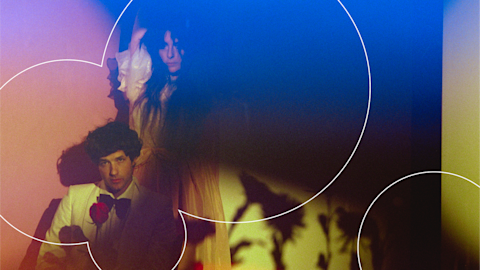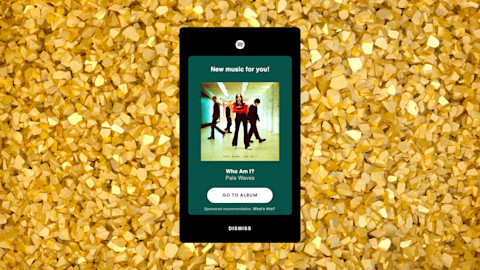After you’ve spent ages on a release, fine-tuning the performances and production to match your creative vision, there’s still a pretty big hurdle in front of you: How do you get people to listen to it?
The same things that have allowed the internet to make a lot of progress toward democratizing the music market—lower barriers to entry and lots more distribution options—have also made it harder to cut through the noise and get the right people to pay attention. The fact that the number of editorial outlets is steadily decreasing makes it even tougher for an emerging artist to get press. Attracting the attention of the press is a key component to growing your audience, and also to marketing your music in the right way. Here are some tips for maximizing your band’s press potential.
Identify your press targets
Before you can figure out which press outlets might want to talk about you, you need to have a firm grip on who you are. What kind of people are interested in you? Talking to a public-relations pro can help you not only figure out not only what audience you have but also what audience you want and how to connect with them.
Once you know who you are as a band, what fans you attract, and what those fans like, you can start to figure out how to reach them and through what channels. What do fans (or potential fans) of your music read and what do they watch? Identify specific outlets that have the ear of your audience. “You have to be realistic about what an outlet covers and make sure your music and story makes sense in their scope of coverage,” says Amy Sciarretto of AtomSplitter PR, who rep the likes of Anti-Flag, Korn, and Underoath among many others. “It's good to come up with targets and tentpole publications to work toward, but realize that everything in between is also of value in creating your story, making your name recognizable, and helping you grow.”
Do your research on the outlet and its specific needs. Pitching a news item to a press outlet that specializes in longform storytelling or pitching a story about an up-and-coming rap artist to a mostly punk-leaning zine will be a waste of your time (not to mention theirs). “There are certain people who pitch constantly, and literally have no idea who they are pitching to,” says writer Zachary Lipez, who freelances for Noisey and The Fader, among other publications. “It’s utterly confounding. It’s the email equivalent of throwing something at a wall and hoping it sticks—which, in this case, it won’t. Frankly, there is a good chance that future items won’t either.”
Know that writers are on your side
Sometimes writers take on stories that were assigned to them by their editors, but most of the time, a writer is focusing on a topic they’ve chosen because they’re interested in it. Scott Lapatine, founder and editor in chief of Stereogum, emphasizes that two elements—interest and the quality of the release—are key. “We get hundreds of song premiere requests via publicists a week,” says Lapatine, “but we are just as likely to highlight a band we stumbled across on Bandcamp, or caught opening at a club, or found via an endorsement from an artist. The thing all these acts will have in common is that we thought our audience should know about them.”
For these reasons, many bands opt to shell out for a PR rep. One of the benefits of PR reps is that the good ones form relationships with writers and know who’s interested in what, so the writers will trust the info coming from that rep. If you’ve chosen your PR person well—one who knows the scene your music inhabits and its players—they’ll have a comparatively easy time getting the attention of writers.
Polish your pitch
Identifying the appropriate audience for your pitch isn’t the same thing as understanding what to say to them, and how. The average seasoned writer gets hundreds or possibly thousands of PR emails per day. Grabbing attention is paramount, whether it’s as simple as putting the writer’s name in the subject line of an email, or even—in this day of digital promos and email-heavy communication—sending them a physical package.
The goal is to stand out from the pack, so be creative, though don’t skimp on information regarding who you are and what your music is about. Be brief yet factual; items like bullet points, boldface or italicized type, and numbered lists are quick and effective ways to share lots of information quickly. Give enough to pique interest without getting overly bogged down in the nitty-gritty; provide a link to your website for more details. Share additional contact information (such as your phone number), always making sure that the receiver understands who you are, what you are contacting them about, and where to reach you when they’re ready to learn more.
“Being genuine counts for a lot, as does being respectful of people’s time,” explains Jamie Ludwig, a freelance writer for Bandcamp, Chicago Reader, and elsewhere. ”Hounding journalists and editors on social media is an easy way to get blacklisted. And at least for me, if a pitch reads like it was written by a salesperson at a used-car dealership versus a musician or industry pro, or a promo package includes literal junk intended to grab my attention—real-life examples include plastic forks, a ‘roadkill’ stuffed animal, and an envelope full of confetti—it's getting digitally or physically thrown in the trash.”
Your consistent angle should be quality
It can be tempting to look for an “angle” that will help you tell your story, but be wary. In an era of clickbait headlines and subject lines, you want to steer clear of anything that’s disingenuous or too off-the-wall—in other words, that draws attention to something other than your (awesome) work.
Brandon Geist, editorial director at Revolver, notes that on occasion, an angle provided by a source (such as you or your PR rep) can be useful. “Sometimes I’m looking for a hook, something to draw readers in,” he says, though he emphasizes that that is not always the case. Lapatine agrees: “Having a good press angle is not essential. I’m looking for great music that’ll stand the test of time.”
Overall, press can help push your marketing ideas way further, reaching bigger audiences and helping you gain traction far and wide. As press increases, so does visibility, so strong press is one arrow in the quiver of things—including smart marketing and touring—that can help grow your career. With all of these skills dialed in correctly, the world’s at your feet.
—Fred Pessaro


